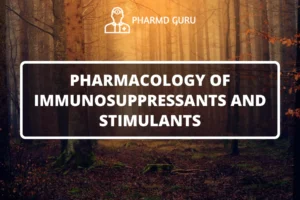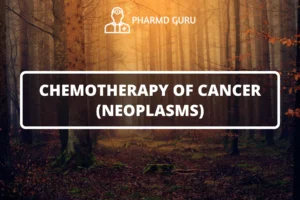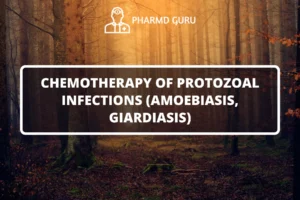CHEMOTHERAPY OF MALARIA
Malaria is a life-threatening parasitic disease caused by the Plasmodium parasites and transmitted through the bites of infected female Anopheles mosquitoes. It is a significant global health concern, particularly in tropical and subtropical regions. Chemotherapy plays a vital role in the treatment and prevention of malaria, offering various antimalarial drugs that target the parasite at different stages of its lifecycle. In this article, we will explore the chemotherapy options available for the treatment of malaria, including the drugs used, treatment protocols, potential side effects, and the importance of effective antimalarial strategies.
SCROLL DOWN TO THE BOTTOM OF THIS PAGE FOR ACTUAL NOTES.
TABLE OF CONTENTS:
- Introduction
- Antimalarial Drugs Overview
- Artemisinin-Based Combination Therapies (ACTs)
- Quinine and Quinidine
- Chloroquine and Hydroxychloroquine
- Mefloquine
- Potential Side Effects
- Drug Resistance
- Prevention Strategies
Introduction
Malaria poses a significant health burden worldwide, causing millions of cases and hundreds of thousands of deaths each year. Chemotherapy, the use of specific drugs to treat the disease, is a critical component in the fight against malaria. Effective antimalarial chemotherapy aims to eliminate the parasite from the patient’s bloodstream, prevent complications, and reduce the transmission of the disease.
Antimalarial Drugs Overview
Several classes of antimalarial drugs are available for the treatment of malaria. The choice of drug depends on the species of Plasmodium causing the infection, the geographic location, and the patient’s clinical condition. The most commonly used antimalarial drugs include:
- Artemisinin-Based Combination Therapies (ACTs): ACTs are the recommended first-line treatment for uncomplicated Plasmodium falciparum malaria, the most severe form of the disease. These combinations contain an artemisinin derivative, such as artemether or artesunate, combined with a partner drug, such as lumefantrine or amodiaquine.
- Quinine and Quinidine: Quinine and quinidine are effective against chloroquine-resistant strains of malaria. They are often used for severe malaria cases or when ACTs are not available or appropriate.
- Chloroquine and Hydroxychloroquine: Chloroquine and hydroxychloroquine were previously the first-line treatment for malaria. However, due to the emergence of drug-resistant strains, their use is now limited to areas with no or low resistance.
- Mefloquine: Mefloquine is an alternative drug for the prevention and treatment of malaria, particularly in regions with multidrug-resistant Plasmodium falciparum.
These drugs work by targeting different stages of the parasite’s lifecycle, including the asexual blood stage, the sexual stage (gametocytes), and the liver stage.
Potential Side Effects
While antimalarial drugs are generally safe and well-tolerated, they can cause side effects in some individuals. The specific side effects depend on the drug used and may include gastrointestinal disturbances, headache, dizziness, rash, and in rare cases, more serious adverse reactions. It is important for healthcare providers to educate patients about potential side effects and to monitor their response to treatment closely.
Drug Resistance
One of the major challenges in malaria chemotherapy is the development of drug resistance by the Plasmodium parasites. Resistance to antimalarial drugs, particularly to artemisinins, has emerged in certain regions, posing a significant threat to malaria control and treatment efforts. Ongoing surveillance, monitoring, and research are crucial in addressing and preventing the spread of drug-resistant malaria.
Prevention Strategies
In addition to chemotherapy, prevention strategies play a vital role in the control of malaria. These include the use of insecticide-treated bed nets, indoor residual spraying with insecticides, and chemoprophylaxis for individuals at high risk of infection. Integrated approaches that combine prevention and treatment strategies are essential for reducing the burden of malaria globally.
ACTUAL NOTES:




